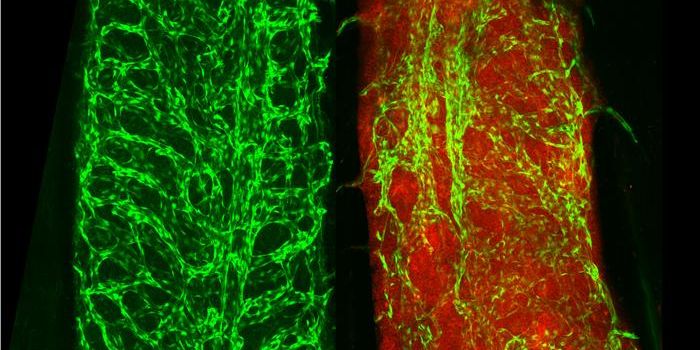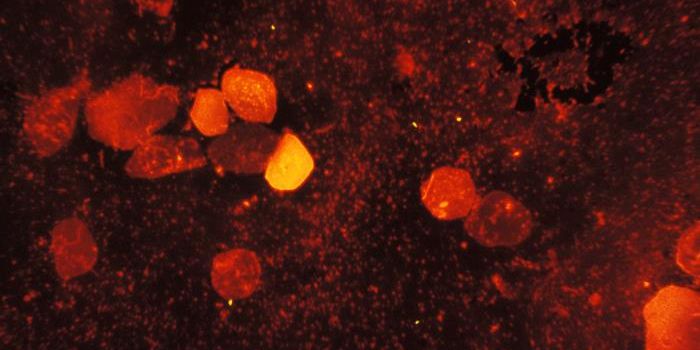Tumor Stiffness Linked to Its Aggressiveness
As tumors grow, tiny areas at their cores are found to become stiff prior to metastasis, or the spread of cancer cells to secondary locations in the body. McGill University researchers are building technologies to sense these subtle biophysical changes, allowing them to track the progression of invasive breast cancers. The study was published in Nature Communications.
“We are now able to see these features because our approach allows us to take measurements within living, intact, 3D tissues,” said Chris Moraes, lead researcher of the study. “When tissue samples are disrupted in any way, as is normally required with standard techniques, signs of these ‘hot spots’ are eliminated.”
To study these minute forces occurring within the tumor microenvironment, Moraes and colleagues created microscopic hydrogel sensors, each approximately the size of a single cell. These sensors were embedded in 3-dimensional tumor cultures isolated from a breast cancer mouse model. The hydrogel is programmed to expand, allowing the researchers to quantify localized regions of stiffness inside the tumor mass.
“Human cells are not static. They grab and pull on the tissue around them, checking out how rigid or soft their surroundings are. What cells feel around them typically drives their behavior: immune cells can activate, stem cells can become specialized, and cancer cells can become dangerously aggressive,” explained Moraes.
“Breast cancer cells usually feel surroundings that are quite soft. However, we found that cancer cells inside aggressive tumors experienced much harder surroundings than previously expected, as hard as really old and dried up gummy bears.”
From a diagnostic perspective, intratumoral tension could be used as a metric to map future disease progression. The team is currently developing methods to analyze the mechanical profiles of tumors to better predict patient risk and outcomes.
Sources: McGill University, Nature Communications.









